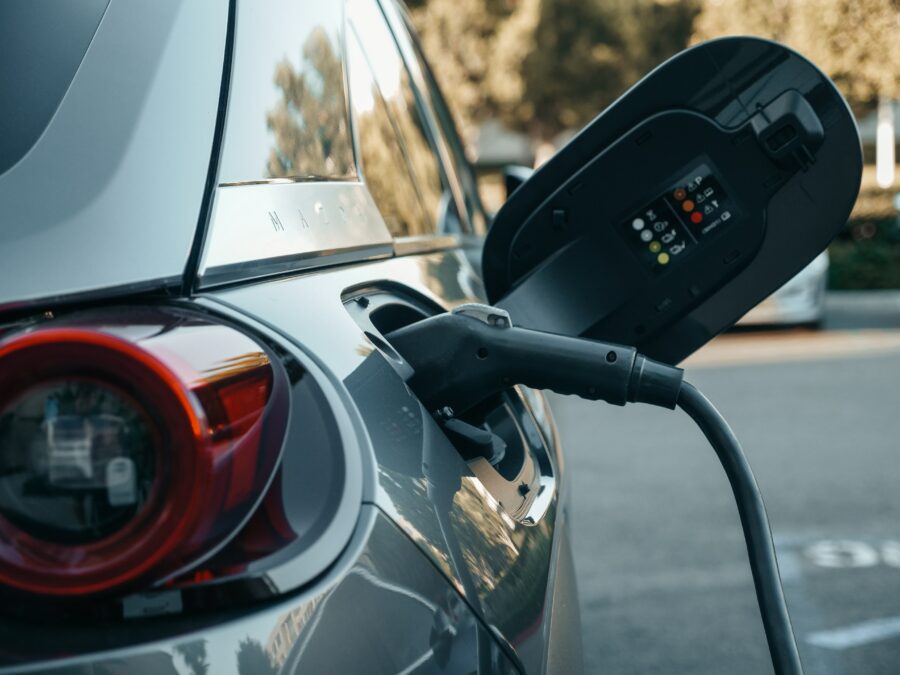Hydrogen-fueled EV charging stations have been making waves in the news lately, and for good reason. Hydrogen is an excellent energy source to power electric vehicle charging stations. It’s easily stored in fuel cells — increasing the reliability of power grids. Hydrogen also eliminates emissions, improving air quality and reducing the emissions that currently deteriorate our environment.
But the benefits of hydrogen go even deeper. Hydrogen allows for energy independence. It can be locally produced on the spot, even in hard to reach or remote areas, decreasing reliance on imported energy sources. Plus, it’s actually safer than gasoline and natural gas.
Hydrogen has been used as a renewable energy source for over 50 years, and it’s high time to spotlight its benefits from EV charging and beyond. At ChemTec, we offer cutting-edge equipment and products — like our line of Excess Flow Valves — that contribute to faster and greener charging across industries like chemical, refining, electronics and pharmaceuticals.
Read on to learn more about this growing trend and the future of hydrogen-fueled charging.
Harnessing the Future: Hydrogen-Powered EV Charging Stations
At ChemTec, we’re keeping a close eye on the rise of hydrogen fuel cells and specifically, hydrogen-powered EV charging stations, because they will allow for significant growth without dependence on foreign energy sources. It’s no secret that the rapid growth of EV charging stations has placed a strain on the current power grid. Hydrogen is a renewable, clean energy source that reduces that strain.
In fact, hydrogen does not rely on the power grid at all. It’s locally produced, which allows EV charging stations to be built in remote areas. That means drivers and emergency vehicles alike can charge quickly without relying on a grid anytime — even during an emergency or in disaster situations where there is a loss of power.
How Do Hydrogen-Powered Electric Vehicle Charging Stations Work?
Renewable hydrogen is created from a process called water electrolysis. This green hydrogen is stored in fuel cells. These fuel cells generate electricity through an electrochemical reaction using hydrogen and oxygen to generate electricity, heat and water.
Hydrogen fuel cells are comparable to batteries in that they can produce electricity without relying on combustion or emissions. But unlike batteries, these fuel cells don’t need to be recharged, as long as they have access to a hydrogen source and oxygen.
The generated hydrogen power stored in hydrogen fuel cells can provide the electricity needed to power EV charging stations both at a faster rate and with significantly less environmental impact than traditional electricity.
Environmental Benefits of Hydrogen Fuel Cells
Hydrogen is the cleanest, most sustainable renewable energy. Its by-products are only water and heat. As the most abundant element on earth, hydrogen can be produced through dozens of different methods and applications. If the hydrogen is produced by natural gas, it can reduce carbon dioxide emissions by up to half; if it’s produced by renewable energy like wind or solar, it can reduce emissions by up to 90 percent.
Even better, hydrogen created by electrolysis of water actually eliminates the polluting emissions from carbon dioxide and nitrogen oxides from the atmosphere. Needless to say, this amounts to significantly less environmental impact, especially compared to conventional gasoline vehicles.
ChemTec’s Role in New Hydrogen-Powered EV Technology
Flow Monitoring and Control
Despite the benefits of hydrogen, concerns exist regarding its flammability. Hydrogen fuel cells are also known to be highly volatile, so it’s crucial to take proper precautions. Hydrogen storage and production facilities are subject to stringent government regulations to ensure public safety. There are multiple government standards and codes to cover equipment design, construction and permitting.
For this reason, it’s essential that generation, purification and dispensing equipment is designed with appropriate safeguards. Two devices to consider are flow monitors and excess flow valves.
Flow Monitors for Hydrogen Power
Flow monitors, like the 125, 125BP, and 500 Bypass Series from ChemTec, are an inexpensive way to guard against abnormal flow conditions. Should a filter or pipe become partially or completely blocked, the flow monitor sends a signal to monitoring equipment. This allows remedial action to be taken quickly.
Excess Flow Valves for Hydrogen Power
An excess flow valve (EFV) regulates the emission of gasses, either manually or automatically. For example, it guards against sudden disconnection or breakage of a pipe or hose. If an accident leads to uncontrolled fluid release, the EFV responds by sealing off the flow.
An EFV is essential when handling specialty gasses like hydrogen — in fact, it is a crucial component of any hydrogen application. Preventing the uncontrolled flow of gasses and liquids is vital in meeting necessary safety regulations, plus it protects your equipment and other company resources.
Submit an Application Inquiry
Click here to submit an application inquiry to find the ChemTec product that meets your needs. Our products are made 100% in the United States, which allows us to control all manufacturing and customization. If you’re not ready to place an order, browse our product catalog here.
